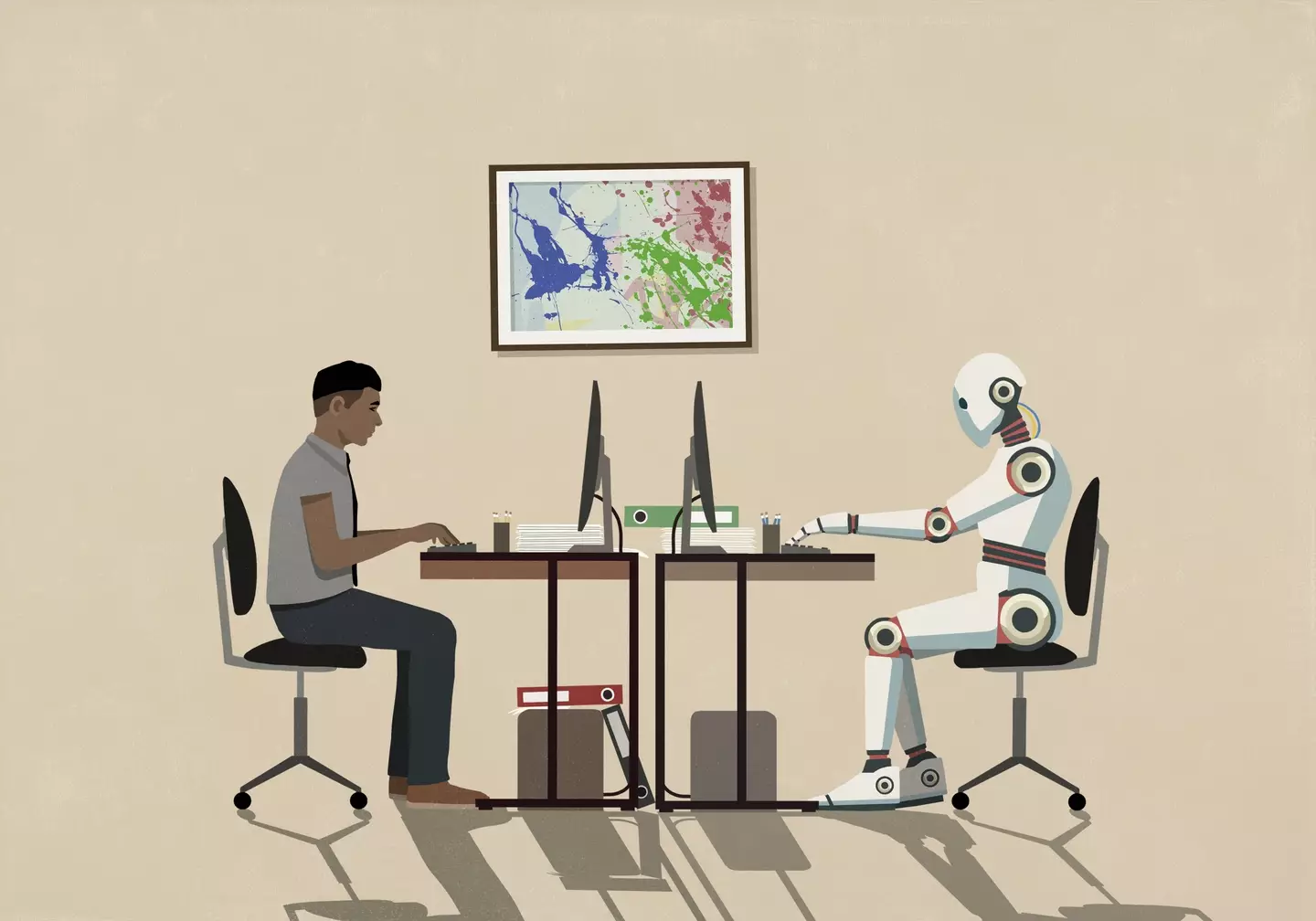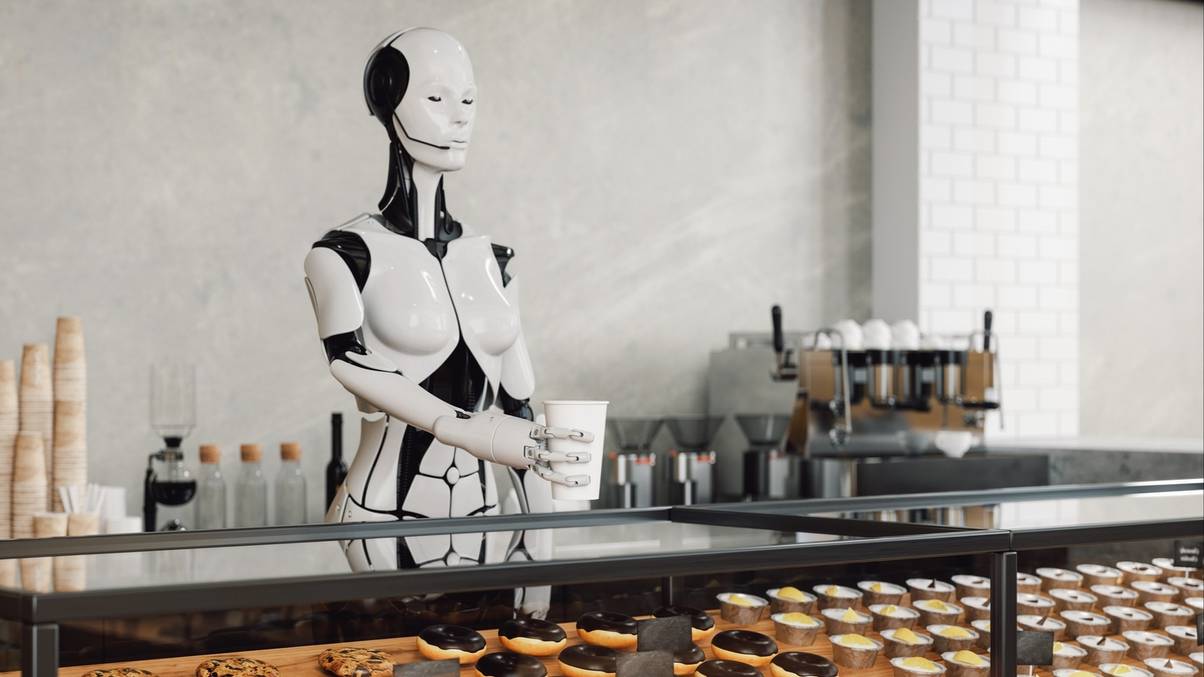Shocking Prediction: Just Five Jobs Will Survive the AI Revolution by 2030—Is Yours One of Them?
So, here’s a wild thought to chew on: what if you showed up to your job next Tuesday, only to find out a robot did your whole gig better, faster, and without needing coffee breaks? Yeah, that’s not a sci-fi plot twist—it’s the grim forecast from AI guru Dr. Roman Yampolskiy, who’s sounding the alarm on an impending job market apocalypse. Picture this—a musical chairs game where the music never stops, and AI’s already claimed most of the seats before you even blink. By 2027, we might be dealing with super-smart AI and humanoid robots that make hiring humans for most jobs almost pointless. With the prospect of 99 percent unemployment looming like a dark cloud, it begs the question: which jobs can we still cling to in this brave new world? Buckle up, because it’s a crazy ride through the five fields where humans might just have a shot at staying relevant. LEARN MORE.
An expert in artificial intelligence is predicting an extinction level event in the job market within the next few years, and has named the five fields where people will still be able to get jobs reliably.
The job market is a sadistic game of musical chairs at the best of times, but AI could be the thing which scoop up most of the seats before the music stops again, leaving a huge amount of people out of work.
For most of human history people have used their labour to get the things and money they need, but if the economy largely doesn’t need that any longer and the value of a working person drops massively, then it’s going to be one hell of a change.
Speaking on the Diary of a CEO podcast, AI expert Dr Roman Yampolskiy warned that by 2027 we’d likely have artificial general intelligence, and that coupled with the development of functional humanoid robotics would mean ‘makes no sense to hire humans for most jobs’.
“In five years all the physical labour can also be automated,” the expert warned of the change to the world of work by 2030.

An expert predicts AI will be able to do our jobs better than us in just a few years (Getty Stock Photo)
“So we’re looking at a world where we have levels of unemployment we never seen before.
“Not talking about 10 percent unemployment which is scary but 99 percent.”
But there are five sectors which could survive:
The human touch for those who can afford it
Dr Yampolskiy said: “All you have left is jobs where for whatever reason you prefer another human would do it for you.”
Dr Yampolskiy suggested that accountants might be one such role, as while AI can do sums very quickly people ‘like traditional ways of doing things’ as that keeps the human touch in the bargain.
He said: “Warren Buffett would not switch to AI. He would use his human accountant.”
A ‘fetish’ for human-made creative products
Dr Yampolskiy said you might get some ‘tiny subset’ of a market for people who still preferred man-made crafts, but said this was ‘almost a fetish’ and wouldn’t be enough to support lots of jobs.
He said it’s a bit like how people will pay more for handmade goods made locally than mass-produced goods made in China, but he added that it will only be a ‘small subset’.
Jobs that require knowledge of the human experience
Counsellors might also be safe. There are people who’ve been using AI as a therapist, but there have been plenty of warnings over the dangers of doing this.
People are much more likely to value people with lived experience of what it means to be human over an algorithm.
Dr Yampolskiy said: “In a world of superintelligence which is defined as better than all humans in all domains, what can you contribute? You know better than anyone what it’s like to be you.”
Meanwhile, two possible growth industries are those which will rely on AI itself to provide the work.
Someone will need to regulate AI
Ideally you wouldn’t want to completely remove human decisions from all AI processes so there will be people whose job it is to give AI some oversight.

Dr Roman Yampolskiy says AI is coming for your job (Diary of a CEO)
Ultimately, Dr Yampolskiy doesn’t think keeping AI on a tight leash is 100 percent feasible in the long run, but said oversight now will mean a more gradual rollout of AI and superintelligence over 50 years rather than five.
He said: “At this point we’re trying to get more time.”
And someone will need to explain AI to everyone else
On top of that there’ll be jobs for people acting as intermediaries for artificial intelligence between the technology and the people who don’t really know how to use it.
For instance, you would need someone who understands both how AI works and how to explain it to humans if you’re embedding it within a business.
That’s hardly encouraging.



















Post Comment